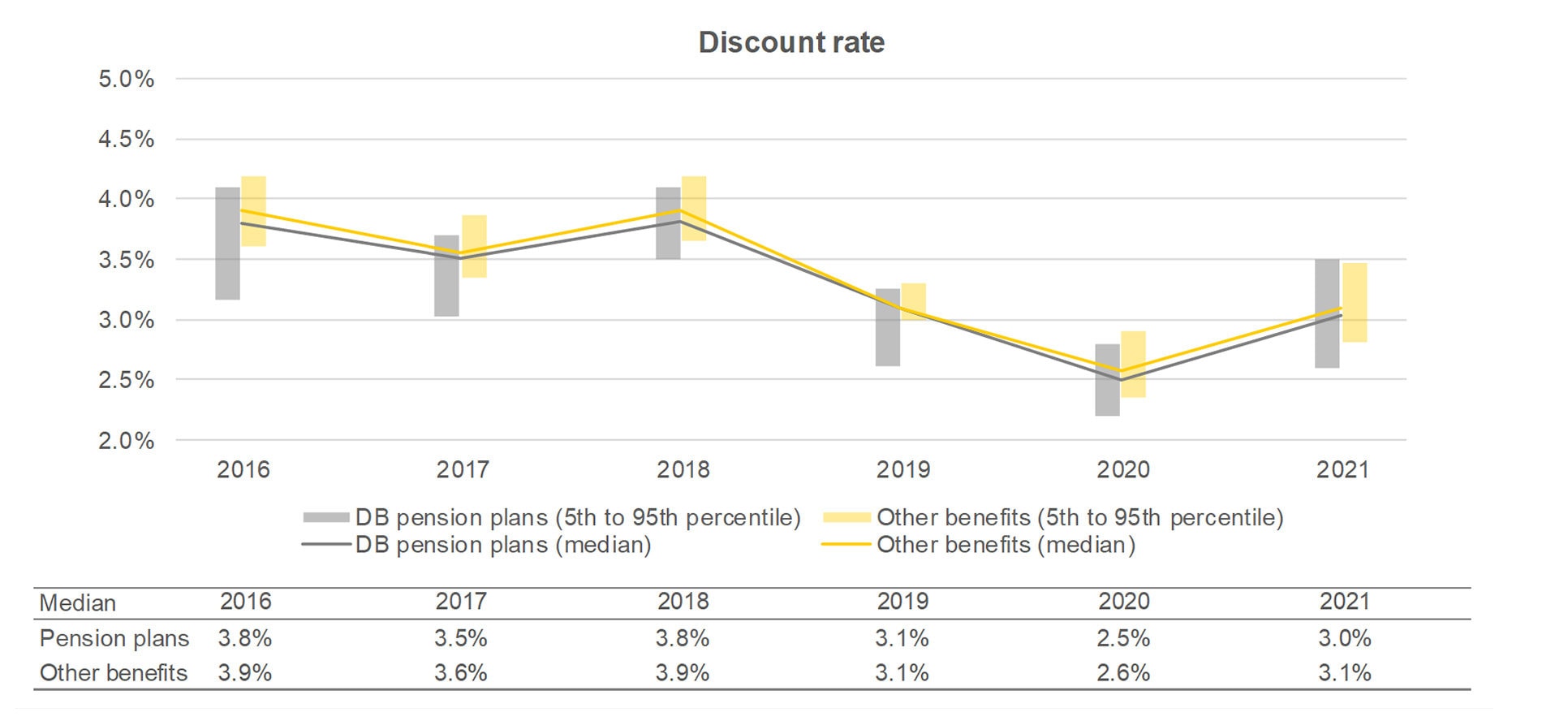

Finance
How Do You Define Financial Goals?
Published: December 23, 2023
Learn how to define financial goals effectively with expert tips and strategies in the field of finance. Achieve financial success and stability with proper goal setting.
(Many of the links in this article redirect to a specific reviewed product. Your purchase of these products through affiliate links helps to generate commission for LiveWell, at no extra cost. Learn more)
Table of Contents
Introduction
Setting financial goals is an essential step towards achieving financial success and security. Whether you want to save for retirement, buy a house, or pay off debt, having clear and defined financial goals can help you prioritize your spending, make informed decisions, and stay on track with your financial journey.
Financial goals serve as a roadmap that guides your financial planning and helps you align your actions with your desired outcomes. They provide a sense of purpose, motivation, and direction, allowing you to make intentional choices that support your long-term financial well-being.
With the vast array of financial possibilities and challenges, it is crucial to define and establish personalized financial goals that reflect your unique circumstances, aspirations, and values. These goals should be realistic, measurable, time-bound, and flexible enough to accommodate life’s changes and unexpected events.
In this article, we’ll explore the importance of setting financial goals, discuss different types of financial goals, learn how to set and monitor them, and provide practical examples of common financial goals.
Importance of Financial Goals
Financial goals play a crucial role in shaping the overall financial well-being of an individual. Here are some key reasons why having financial goals is important:
- Direction and Focus: Financial goals provide a sense of direction and focus in your financial life. They help you prioritize your spending, saving, and investing activities, ensuring that you are working towards specific objectives.
- Motivation and Discipline: Goals act as motivators, giving you a reason to stick to your financial plans and maintain discipline when it comes to managing your money. They can provide the extra push you need to save more, spend less, and make wise financial decisions.
- Financial Decision-making: When you have clear financial goals, it becomes easier to make informed decisions. You can evaluate different choices and determine whether they align with your long-term objectives.
- Measurement of Progress: Setting goals allows you to track your progress and measure your financial success. It gives you a benchmark to assess how well you are doing and make adjustments if necessary to stay on target.
- Financial Security: Financial goals contribute to your overall financial security. By saving for emergencies, retirement, or other planned expenses, you create a safety net that protects you and your loved ones from unexpected financial hardships.
- Empowerment and Control: Having financial goals empowers you to take control of your financial future. It enables you to make deliberate choices that align with your values and aspirations, rather than simply reacting to financial circumstances.
Overall, financial goals provide a roadmap for your financial journey. They give you clarity, motivation, and the ability to make conscious decisions that shape your financial life. Whether your goals are big or small, short-term or long-term, having them in place is a key step towards achieving financial success.
Understanding Financial Goals
Before you can effectively set financial goals, it’s important to have a clear understanding of what they are and how they work. Financial goals are specific objectives that you set for your personal or business finances. They are measurable targets that you strive to achieve within a certain timeframe. Financial goals can encompass various aspects of your financial life, including saving, investing, debt repayment, budgeting, and more.
Here are some key elements to consider when understanding financial goals:
- Specificity: Financial goals should be specific and well-defined. Vague goals like “save money” or “reduce debt” lack clarity and may not provide the necessary motivation or direction. Instead, goals such as “save $10,000 for a down payment on a house” or “pay off $5,000 in credit card debt in one year” provide a clear target to work towards.
- Measurability: It’s essential to have a way to measure your progress towards your financial goals. This could be in terms of dollar amounts, percentages, or specific milestones. Measurable goals help you track your progress and determine if you’re on track or need to make adjustments.
- Timeframe: Every financial goal should have a timeframe attached to it. Setting a deadline or target date adds a sense of urgency and helps you stay focused and accountable. Consider whether your goal is short-term (less than a year), medium-term (1-5 years), or long-term (more than 5 years).
- Realism: While it’s great to dream big, it’s important to set realistic goals that are achievable given your current financial situation. Unrealistic goals can lead to frustration and discouragement. Assess your resources, income, and expenses to ensure that your goals are within reach.
- Flexibility: Financial goals should be flexible and adaptable. Life circumstances can change, and unexpected events may require adjustments to your goals. Don’t be afraid to reassess and modify your goals as needed to stay aligned with your changing financial landscape.
Understanding these key aspects will help you set effective and meaningful financial goals. By having clear objectives that are specific, measurable, time-bound, realistic, and adaptable, you will be better equipped to plan and achieve financial success.
Types of Financial Goals
Financial goals can vary depending on individual circumstances, priorities, and life stages. Here are some common types of financial goals:
- Emergency Fund: This goal involves saving a specific amount of money to cover unforeseen expenses or financial emergencies. An emergency fund provides a safety net and helps you avoid going into debt when unexpected situations arise.
- Debt Repayment: Paying off outstanding debts, such as credit card debt, student loans, or car loans, is a common financial goal. By reducing debt, you can improve your financial health, reduce interest payments, and increase your disposable income.
- Saving for Retirement: Building a nest egg for retirement is a long-term financial goal for many. This involves saving and investing a portion of your income to ensure a comfortable and financially secure retirement.
- Homeownership: Saving for a down payment on a house or paying off a mortgage is another common financial goal. Homeownership provides stability and can be an investment in your future.
- Education Funds: Saving for your children’s education expenses, such as college or university tuition, is a significant financial goal for many parents. Setting aside funds in a dedicated education savings account can help alleviate the burden of student loans.
- Travel and Experiences: Some financial goals may focus on enjoying life experiences, such as travel, vacations, or pursuing hobbies and passions. Saving for these experiences can bring joy and fulfillment to your life.
- Investment Goals: Investing to grow your wealth and achieve specific financial milestones, such as buying a second property or starting a business, can be a goal for those seeking long-term financial growth.
- Charitable Giving: Setting a financial goal to give back to the community or support causes that are important to you is a meaningful way to make a positive impact.
These are just a few examples of the various financial goals you can set. Remember that your goals should be personalized to your own financial situation, aspirations, and values. It’s essential to prioritize and align your financial goals with what matters most to you.
Setting Financial Goals
Setting financial goals is a proactive and strategic process that can help you achieve your desired financial outcomes. Here are some steps to follow when setting financial goals:
- Assess Your Current Financial Situation: Start by evaluating your current financial status. Review your income, expenses, savings, debts, and investments. Understanding where you stand financially will help you set realistic goals that are in line with your resources and capabilities.
- Identify Your Priorities: Determine what matters most to you in terms of your financial objectives. Reflect on your short-term and long-term aspirations. Is it buying a house, starting a business, or retiring comfortably? Defining your priorities will guide you in setting specific goals that align with your values.
- Be Specific and Measurable: Set clear and measurable goals. Instead of saying, “I want to save money,” specify an exact amount and a deadline. For example, “I want to save $10,000 for a down payment on a house within two years.”
- Break It Down: Divide larger goals into smaller, manageable milestones. This makes them more achievable and helps you stay motivated. For instance, if your goal is to pay off a $20,000 student loan, set monthly or quarterly targets to track your progress.
- Establish a Timeframe: Attach a timeframe to each goal. It could be short-term (within a year), medium-term (1-5 years), or long-term (more than 5 years). Setting deadlines creates a sense of urgency and helps you stay focused and accountable.
- Consider Financial Constraints: Take into account your financial limitations, such as income, expenses, and other obligations. Set goals that are realistic and attainable within your current financial capabilities.
- Write It Down: Document your financial goals in a clear and concise manner. Writing them down cements your commitment and makes your goals tangible. Keep this written record in a visible place as a constant reminder of what you’re working towards.
- Celebrate Milestones: Acknowledge and celebrate each milestone you achieve along the way. Recognizing your progress boosts motivation and encourages you to keep pursuing your financial goals.
Remember, setting financial goals is a dynamic process. As your circumstances and priorities change, you may need to review and adjust your goals accordingly. Regularly assess your progress, make necessary modifications, and stay committed to achieving financial success.
Monitoring and Adjusting Financial Goals
Monitoring and adjusting your financial goals are vital steps in ensuring that you stay on track and make progress towards achieving them. Here are some key considerations:
- Regularly Track Your Progress: Keep a close eye on your financial situation and how you’re progressing towards your goals. Monitor your income, expenses, savings, and investments regularly. This will help you identify any areas where you need to make adjustments or take corrective actions.
- Review and Reflect: Take the time to review your goals periodically. Assess whether your goals are still aligned with your aspirations, financial circumstances, and changing life circumstances. Reflect on any changes in your priorities and adjust your goals as necessary.
- Identify Challenges and Obstacles: Be aware of any challenges or obstacles that may be hindering your progress. It could be unexpected expenses, changes in income, or unforeseen circumstances. By identifying these challenges, you can find solutions or make adjustments to your goals to overcome them.
- Make Necessary Adjustments: If you find that your goals are too ambitious or unrealistic given your current financial situation, don’t be afraid to make adjustments. Revisit your goals to make them more achievable and align them with your capabilities. This might involve extending deadlines, modifying targets, or reprioritizing certain goals.
- Seek Professional Advice: Consider consulting with a financial advisor or planner who can provide guidance and expertise in evaluating and adjusting your financial goals. They can provide insights and assistance in creating a realistic and sustainable financial plan.
- Stay Motivated: Maintaining motivation is crucial when pursuing your financial goals. Celebrate your successes, no matter how small. Set rewards for achieving milestones to keep yourself inspired and encouraged. Additionally, surround yourself with a supportive network, whether it’s friends, family, or online communities, to stay motivated and accountable.
- Adapt to Changing Circumstances: Life is full of uncertainties, and circumstances can change unexpectedly. Be prepared for these changes and be willing to adjust your goals accordingly. Flexibility is key in navigating financial challenges and adapting to new opportunities.
Remember, monitoring and adjusting your financial goals is a continuous process. Be proactive in reviewing your progress and making any necessary changes. By staying vigilant and adaptable, you can ensure that your goals remain relevant and achievable as you strive towards financial success.
Examples of Financial Goals
Financial goals can vary greatly depending on individual circumstances, aspirations, and priorities. Here are some common examples of financial goals:
- Building an Emergency Fund: Setting a goal to save three to six months’ worth of living expenses in an emergency fund can provide a financial safety net in case of unexpected events like job loss or medical expenses.
- Paying off High-Interest Debt: A goal could be to pay off high-interest debts, such as credit cards or personal loans. By reducing and eliminating these debts, you can save money on interest payments and improve your overall financial health.
- Saving for Retirement: Planning for retirement is a long-term financial goal for many individuals. Setting a goal to contribute a certain percentage of your income to retirement accounts, such as a 401(k) or an IRA, can help ensure a comfortable retirement.
- Buying a Home: Saving for a down payment and purchasing a home is a significant financial goal for many people. This may involve setting a target amount to save for a down payment, improving credit scores, and budgeting for homeownership expenses.
- Starting a Business: Entrepreneurial individuals may set a goal of starting their own business. This could involve saving money for startup costs, market research, and developing a business plan.
- Education and Skill Development: Investing in education or acquiring new skills can be financial goals. Examples include saving for college tuition, vocational training, or professional certifications to enhance career prospects.
- Investing for Financial Growth: Setting a goal to invest in stocks, bonds, real estate, or other investment vehicles to grow wealth and achieve specific financial milestones, such as retirement or funding children’s education.
- Charitable Giving: Some individuals may set a financial goal to donate a certain percentage of their income to charitable organizations or support causes they are passionate about.
- Creating a Budget and Saving Habits: Establishing a goal to create a budget, track expenses, and develop disciplined saving habits can be an essential step towards financial stability and achieving other financial goals.
Remember, these examples are just a starting point. Your financial goals should be tailored to your specific circumstances, desires, and values. It’s important to set goals that are meaningful to you and reflect your personal aspirations and vision for your financial future.
Conclusion
Setting and working towards financial goals is a crucial aspect of achieving financial success and security. By defining your financial goals, you give yourself a roadmap and a direction to navigate the complex world of personal finance. Having clear objectives helps you prioritize your spending, make informed decisions, and stay on track with your financial journey.
Financial goals are not one-size-fits-all; they should be personalized to your unique circumstances, aspirations, and values. Whether it’s saving for retirement, paying off debt, buying a home, or starting a business, your goals should reflect what you truly desire and align with your long-term vision of financial well-being.
Remember that financial goals need to be specific, measurable, time-bound, realistic, and flexible. Regularly monitor and evaluate your progress, make adjustments as necessary, and celebrate your achievements along the way. Stay motivated and seek professional guidance when needed to ensure you’re on the right path.
Ultimately, setting and pursuing financial goals is a journey that requires commitment, discipline, and continuous adaptation. Through thoughtful planning, perseverance, and a clear vision of your desired financial future, you can attain the financial security and freedom you aspire to.














